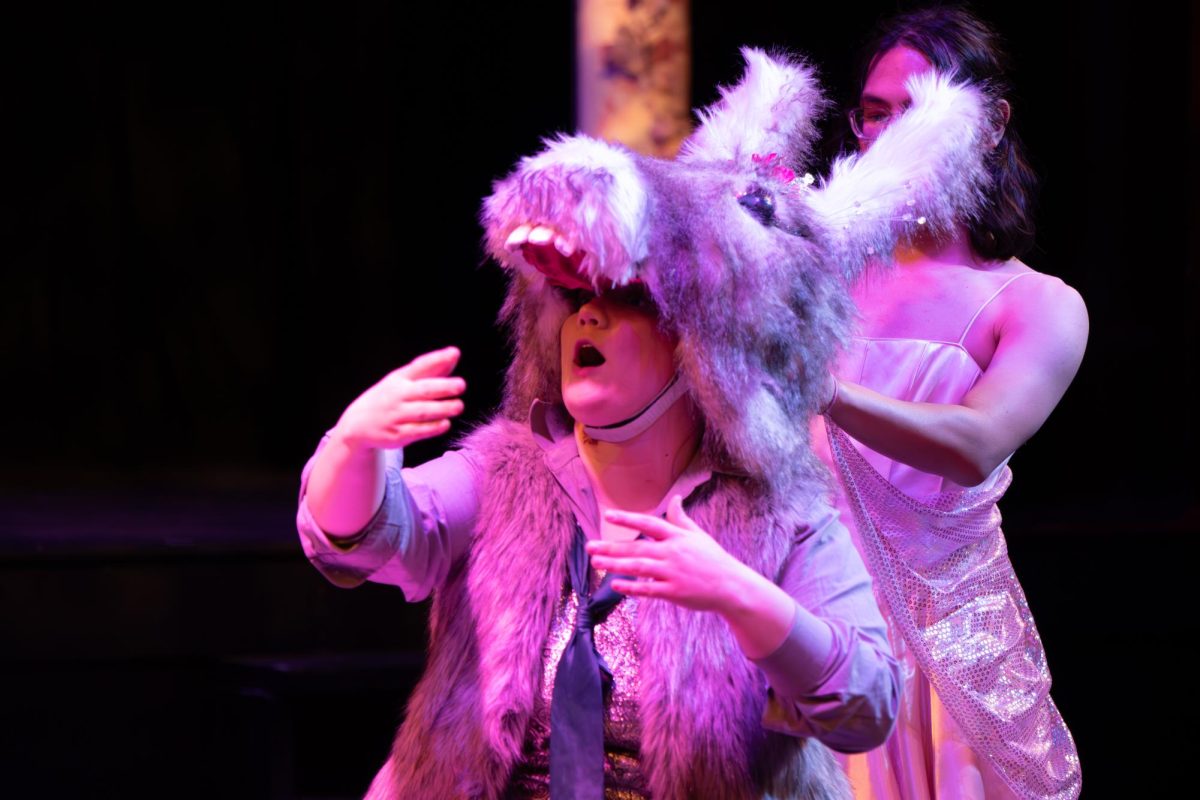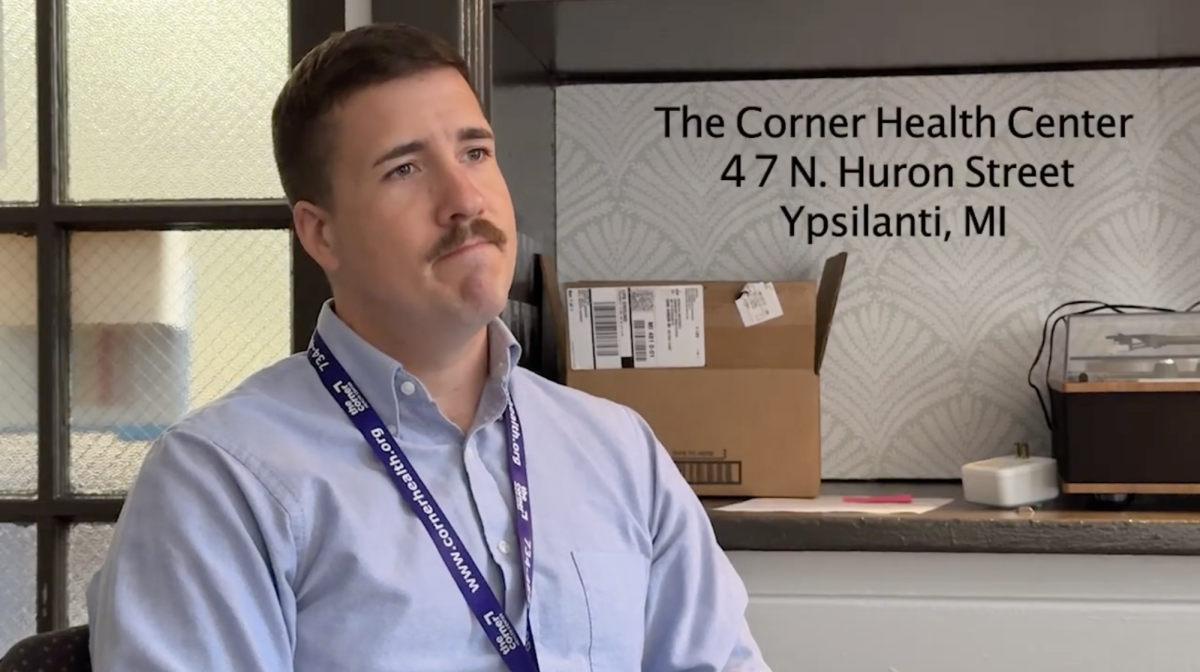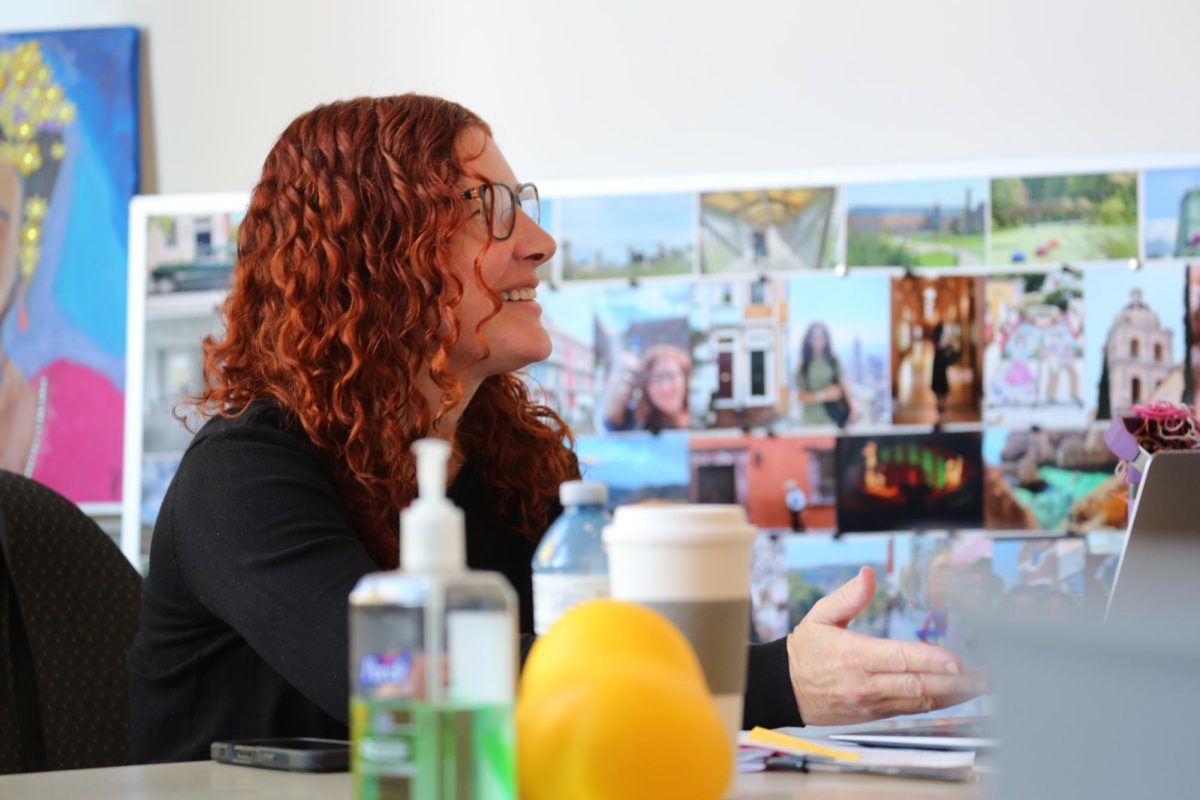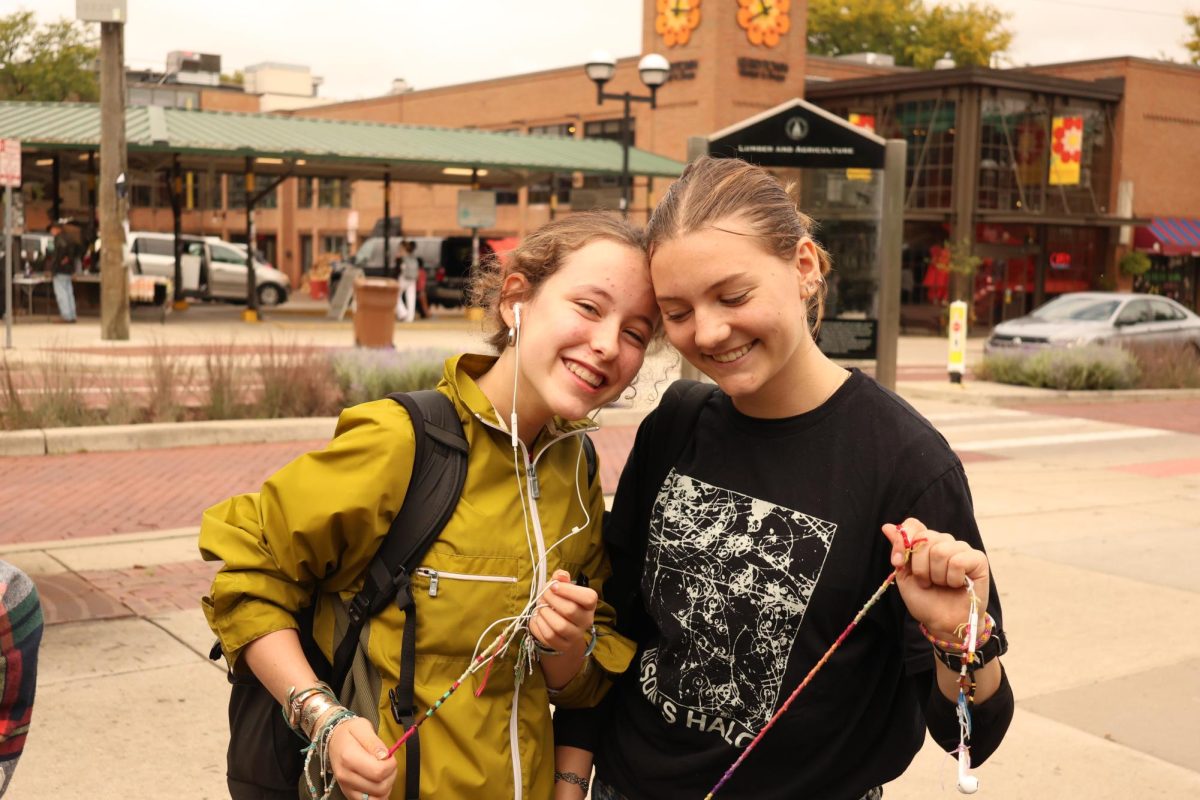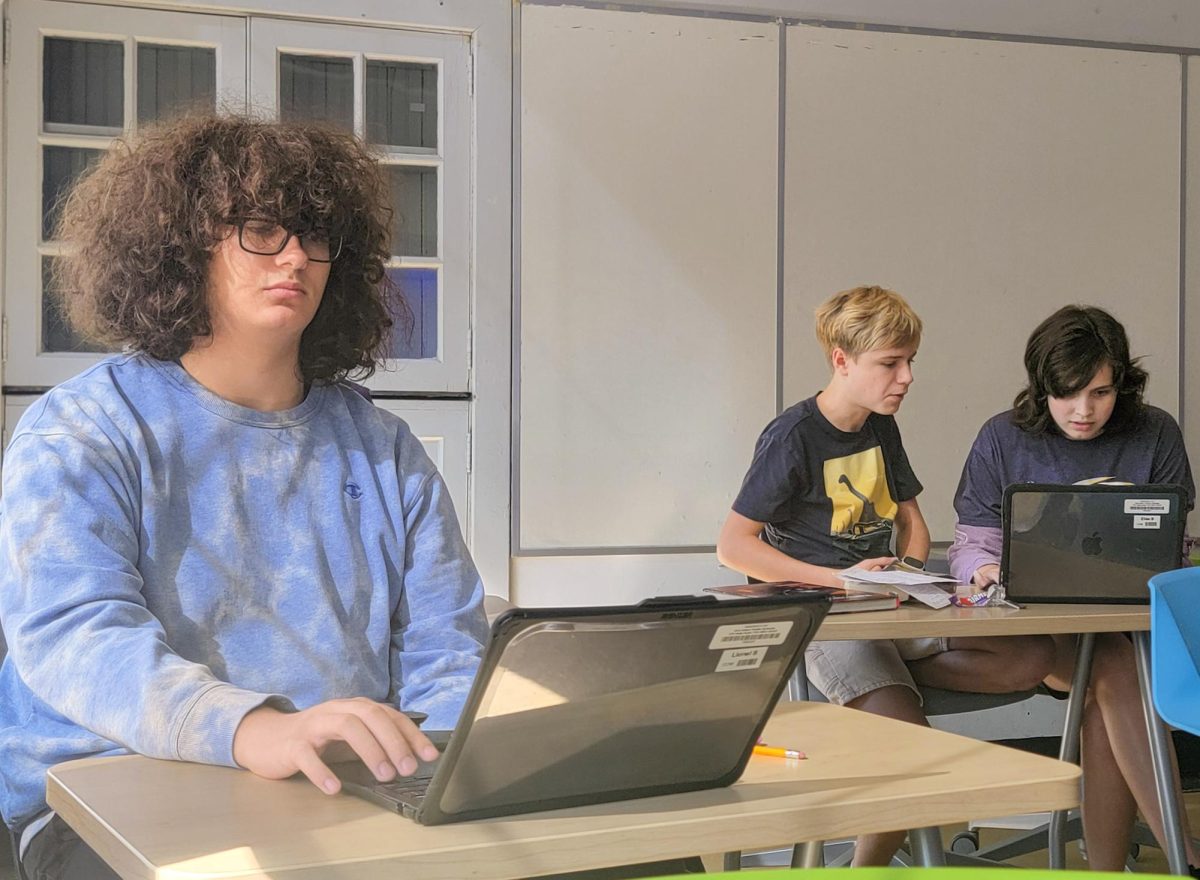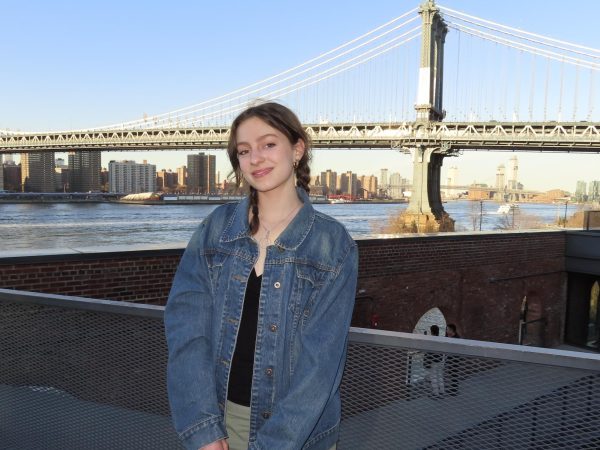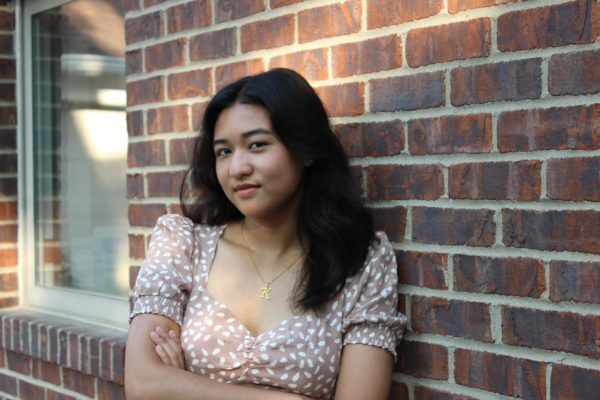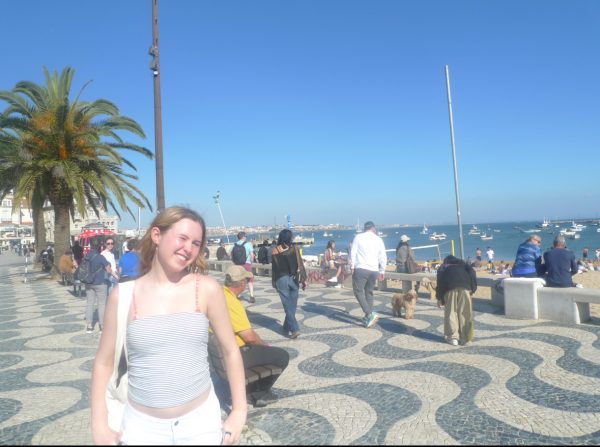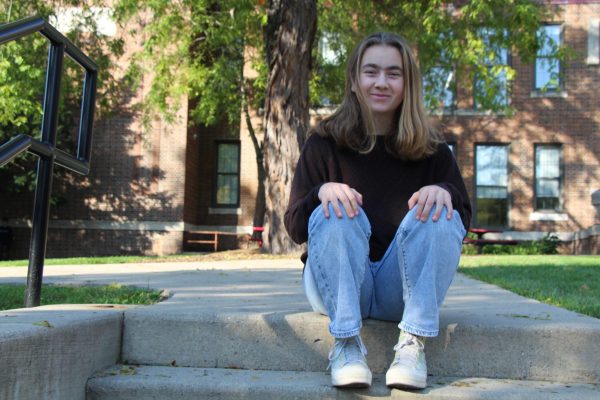Theatre is a major part of many high schoolers’ lives, and CHS students are no exception. Made up of more than 100 students and staff, Community Ensemble Theater’s (CET’s) productions can include almost a quarter of CHS’s student body.
CET director Emily Wilson-Tobin has been involved in theater since she was eight years old. Her parents threw her into theater without knowing how far she would go with it, but Wilson-Tobin quickly fell in love with the process of creating and performing a show and never stopped. She never saw a future for herself in directing, but when her high school theater director unexpectedly passed away in the middle of the 2021 school year, Wilson-Tobin was asked to take his place. After directing at Greenhills for most of her career, she moved to Community. This change sparked what would become years of directing and creating what she loved at CHS.
During her second year at CHS, Wilson-Tobin decided to put on “Cabaret,” a show known for being historically controversial. “Cabaret” takes place in Berlin at the end of the 1920s, soon before the Holocaust. Wilson-Tobin was nervous about putting on such an ambitious piece but ultimately decided the group at CET would be up for the challenge. Looking back, she recognizes this show as one of the best she has ever directed. Wilson-Tobin feels particularly proud of it due to the execution and determined attitude the cast and crew brought to rehearsals and performances. Many themes in “Cabaret” can be difficult, but Wilson-Tobin specifically noted that the use of the swastika in the show is meant to spark discomfort and emotions that people don’t always want to feel.
“We are able to distance ourselves in ways and sort of say that we don’t have responsibility for this,” Wilson-Tobin said. “But the reason a show like that exists is to make you uncomfortable and to make you think about why you’re uncomfortable.”
Wilson-Tobin understands that talking about topics like antisemitism and racism can be difficult but felt that the reason the production went so well was due to the constant effort and understanding the students put into the show. Wilson-Tobin knew that “Cabaret” was an ambitious production to put on, but student interest brought the whole show together.
“The fact that students are so deeply involved in driving it and in a progressive way made me feel like, ‘Okay, let’s go do it,’” Wilson-Tobin said.
CET’s most recent show was a production of “Curtains”, Wilson-Tobin felt uneasy In the months leading up to the 2024 election, but the community of theater and Midsummer gave her a light during the stressful time. Seeing students’ passion about art gave her hope for the future. Wilson-Tobin recognizes the importance of performance and the power theater can hold: it gives people a voice, and it lets people listen.
“Whether it’s like a silly comedy, like “Curtains,” where we’re celebrating and being joyful together, or whether it’s something that has more political chutzpah, I feel like making art is a positive act no matter what,” Wilson-Tobin said.
Another theme Wilson-Tobin wanted to explore in “A Midsummer Night’s Dream” was identity and queerness. One way she executed this was through the use of drag. Early on in the rehearsal process, local drag queen Perry Dox joined the cast for a performance and a Q&A. This gave the cast and crew a chance to ask questions and better understand what drag was. Wilson-Tobin believed that this knowledge and understanding were important to creating a piece of theater that was meaningful.
“There’s a strong queer presence at Community High School,” Wilson-Tobin said. “It felt like a way into that play, which was not a new idea. Certainly, it’s been explored that way before, but that would resonate with this community. It would resonate with me.”
Wilson-Tobin saw “Cabaret” as very direct political theater, but Midsummer held more indirect themes. Wilson-Tobin has never had any fear about what the audience will think of her shows, and since it is a much smaller space, there isn’t a risk of not selling out CET productions. Due to this, Wilson-Tobin feels she has more creativity and freedom when it comes to picking what she wants to do. Many shows are overtly political, but not all of them are so obvious.
“Sometimes, just gathering people together to celebrate queerness is a political act,” Wilson-Tobin said. “Even if it’s just holding up the community in which it’s happening.”
Another politically charged performance was the show “Rent,” directed by CHS alumnus Clarence Collins III of the Huron Players. “Rent” takes place in 1989 and explores themes of racism, homelessness, welfare inequality, drug addiction, LGBTQ+ rights and sexuality.
While directing more political shows, Collins said they would not change much of the show. Since marginalized identities are often politicized, “Rent” tends to be seen as a political show, but Collins prefers to consider it a show about real life and real humans.
“Offending the right people” is a way to make the audience rethink their political ideas. High school theater is also more accessible than some mediums because pricing is typically inexpensive. Collins uses that accessibility to their advantage to expose more people to different political ideas.
“Pushing the boundaries of comfortability is what gets people to genuinely question their strongest beliefs,” Collins said. “What needs to happen is for people to sometimes be shocked by their art to see the world around them. That’s kind of what art is supposed to do, is provoke people’s ideas and ideals.”
Current CHS senior Jaqueline Boynton starred in “Cabaret” as Sally Bowles when she was a sophomore.
“We dealt with very difficult topics,” Boynton said. “I think that our company did a good job of learning the significance of the issues we tackled.”
Prior to the show, CET used various techniques to educate themselves on the topics covered in “Cabaret,” including sessions with guest speakers. Staff took the liberty of bringing in German translators and Jewish speakers to further educate themselves on the harsh topics. The cast and crew alike wanted to make sure they understood the gravity of the material. Recognizing that the topics were difficult to discuss and being transparent about it was an important part of the process.
Boynton recognizes the importance of this being a high school production and the impact of “Cabaret” being performed for an audience full of high school students.
“I think having it right in front of your face is kind of difficult, and that kind of confrontation is really important,” Boynton said.
CHS alumni Hannah Rubenstein played a part in the production of Cabaret as a stage manager. Rubenstein went into the show knowing there were tough topics involved, yet it was important to her to share such heavy themes.
“It was a lot on everyone, we would really just have to take a break because of how deep certain topics were,” Rubenstein said. “We gradually worked our way up to harder parts of the show. I think that the way we did it and conquered it as a group was really meaningful.”
Rubenstien, who had performed “Cabaret” as one of her junior year shows, and looking back, realized the sheer amount of work that was put into the show. Countless hours of rehearsal, line notes and tech, worked seamlessly together to create the beautiful show CET presented.
After each show, Rubenstein noted that the audience would show very strong emotions; they often had a lot of questions, and Rubenstien did her best to answer. This response from the audience signifies the depth of the topic and the effect it had on the audience and everyone involved.
“I just remember closing night. I mean, it was beautiful,” Rubenstein said. “Every time we ended the show, we were all crying.”
Theater carries themes and topics that are incredibly impactful. Whether it’s politics or comedy, theater sparks a response from the audience and encourages change.



